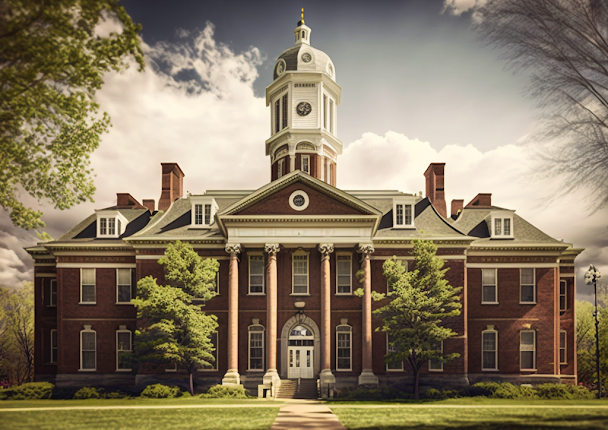In a previous post I promised to say more about opportunities to attend theological schools that are not accredited. Generally speaking I would advise against this path if you are looking for formal preparation to be a certified chaplain, to pursue an a career in academia, or otherwise need an accredited degree for your professional goals. However, if your focus is on church ministry, parachurch work, nonprofit or social enterprise efforts, or being a Bible/theology teacher in a non-academic setting, then an unaccredited seminary might be right for you. You'll find the hourly rate to be perhaps a third or less of accredited schools. You do have to be more careful, though, as there is no independently verified guarantee of quality. In any event, here are four options you might want to consider. The first two are of evangelical alignment, and the second pair are supported by independent Catholic jurisdictions.
First, Rockbridge Seminary in Springfield, Missouri operates out of the Second Baptist Church of that city. Founded in 2003, it conferred the Master of Divinity for the first time in 2007. This is a distance learning seminary, and they claim accreditation through the Distance Education Accrediting Commission (DEAC), and I suggest you take a look at the organization's site to size it up for yourself. I'm including Rockbridge here as unaccredited because the DEAC won't likely be recognized by most employers. Again, you'll want to look into that yourself. The seminary is evangelical in nature, and expects the following of all enrolling students:
Follower of Jesus Christ
Rockbridge Seminary assumes the applicant is a follower of Jesus Christ and is committed to serving Him through ministry. Further, the Seminary assumes that the applicant is known to have a life honoring to Jesus Christ.
Serving In Ministry
Applicants are asked to be actively serving in a local church or other ministry role (either as a volunteer or as a paid staff member) and must be affirmed by local church leadership through a Church Endorsement Form.
We strive to provide high quality academic programming at a modest cost. Our programs help prepare seminarians for sacramental ministry (Catholic apostolic priesthood), non-sacramental ministry, and pastoral counseling. We offer the opportunity to earn a Bachelor of Divinity degree to those who do not already have a baccalaureate degree from an accredited institution; the Master of Divinity to those who do; the Master of Pastoral Counseling for qualified candidates who feel called to do counseling within a spiritual context; the Master of Spirituality for those interested in personal enrichment or non-ordained creative ministry; the Master of Theological Studies for those interested in ordained non-sacramental ministry; and the Doctor of Ministry to select students who have a master’s degree and extensive ministry experience, see below, under “Doctoral Studies.” The course of studies is both structured and individualized. The educational expectations are comparable to those of other seminaries though the curriculum reflects our unique renewal philosophy and style of learning.
The way ATC manages tuition is quite different from the other schools reviewed here. Check it out:
Application fee: $25
Review of Prior Learning: $25
Monthly Tithe: $20 (Includes Administrative, Academic, and Committee Support)
Distance Learning Courses taken through ATC: $75
Retreats & Workshops at the Hermitage: Fee to vary according to expenses for presenter(s), food, materials, etc.
If I understand all that correctly, it's probably the best deal you'll get, at least in hard numbers.
Hopefully this is helpful to someone. As I become aware of other options I'll be sure to post about them as well.
See Also:

No comments:
Post a Comment